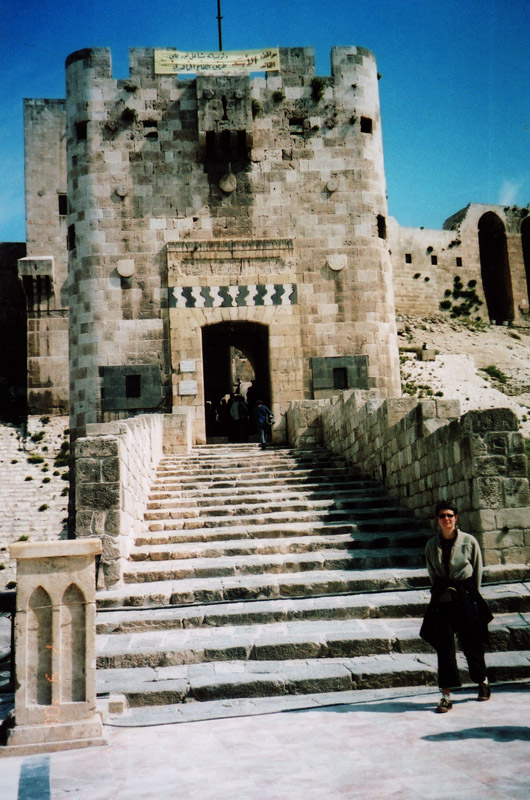Happily the United States and Russia have agreed on a cease fire in Syria.
It was only nine years ago that I was sightseeing there. After visiting the capital city of Damascus, one of my first stops was Aleppo. Founded in the 18th century B.C., it claims to be the oldest continuously-occupied city in the world. In the weeks before Monday’s cease fire, the city had been suffering terribly. Between Syrian government bombing from helicopters and attacks from Russian bombers, so many bombs were striking hospitals that doctors were forced to operate underground. And even after Monday’s cease fire, a government helicopter was reportedly still dropping incendiary bombs over a rebel-held section of historic Aleppo.
My first stop in Aleppo, I remember, was at its Great Mosque, most notable for its graceful 11th-century minaret — slightly tipsy from an old earthquake, but an artistic masterpiece. Zachariah, the father of John the Baptist, is said to be buried in the Great Mosque. Does it still stand?
Next, I explored Aleppo’s miles of covered souks, wandering from winding alley to winding alley, squeezing past motorcycles and donkeys and carts. I bought some yellow-green olive oil soap for which the city was famous, and a little red Kurdish rug. I happily nibbled on almonds and pistachios and dates that vendors were selling. Then I went to the citadel on the outskirts of the Old City. It had been built, in those long-ago days of simple warfare, to keep the Crusaders out of northern Syria.
Two giggling young Syrian women, climbing, as I was, on the Citadel walls and seeing that I had a camera, asked if I would take their picture. One was in blue jeans, but with her hair under a hijab. The other wore a knee-length dress and her hair was flowing. They proudly invited me to see their dormitory at modern Aleppo University, and off we went. There, I met the third roommate, shyer and in fully-covered traditional dress. They showed me the kitchen where they cooked their meals and they offered me tea. We exchanged addresses, as one does, and promised to exchange postcards.
Where are they now? Are they married and the mothers of children who are being so damaged — physically and mentally — by Syria’s civil war?
Are they still alive, those giggling young women so proud of their state-of-the art university? Or perhaps they are unwelcome refugees seeking homes somewhere in Europe.





Comments (1)
Comments
Comment policy »